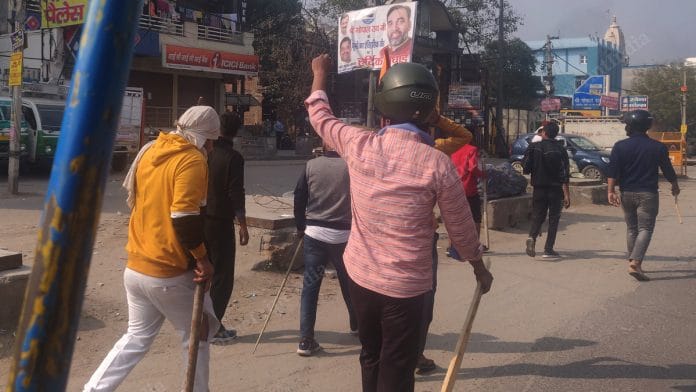India is a land of paradox. Here, ‘rule of mob’ overrides ‘rule of law’. The recent alleged incidents of sacrilege and desecration of Guru Granth Sahib in Punjab must indeed be condemned and nearly everyone did. But what was not condemned as much was lynching of those accused by a mob. Not one major political party came forward to condemn their killings and this raises many questions, which we need to ask ourselves.
Can we as a nation call ourselves a “democratic country”? Or our we fast descending into a “banana republic”, where “rule of mob” overrides “rule of law”, where justice isn’t meted out in the “court of law” but in the “court of mob”, where charges labelled by a mob are sufficient to punish the accused without proving it in court? Increasingly, we are a country where a man (in uniform or without) can assume several roles of being the police, prosecutor, jury, and judge — and punish anyone and draw applause in return. After 70 years of being a democratic republic, India is standing on a crossroad but let’s stop for a moment and analyse the rising incidents of mob attacks and lynchings and ask ourselves: who should we hold responsible for the current state of affairs? The police, judges, politicians or “We, the people of India”?
Mob mentality shakes the edifice of democratic republic
The recent lynching in Punjab isn’t an isolated incident, nor is there any guarantee that it will be the last in the land of so-called “largest democracy of the world”. Beyond those who commit such horrendous acts, “We, the people of India”, who act as a cushion against such incidents and provide tacit legitimacy to such “mob justice” reflect the larger malaise.
Lynching is only one kind of “mob (instant) justice”. The other equally condemnable are “scripted encounters”, where the State (read police) become the prosecutor, jury and judge, and punish the accused without proving charges in the court of law, which is nothing less than murdering its own citizens. Remember, how the Uttar Pradesh Police van got overturned while carrying gangster Vikas Dubey? Similarly, the Telangana Police encountered four accused men in the Hyderabad veterinary rape and murder case in custody. And what did we do in these two cases? We applauded the police for acting at lightning speed and giving “instant justice”. What happened to the accused? They lost their lives and their charges were not proved in the “court of law” but in the “khap-panchayat of mob”. Their human rights of ‘fair and impartial trial’ were buried.
Another example of mob justice has been witnessed in cases of sexual harassment allegations, where we want to punish the accused without waiting for the charges to be proved in the court of law. While the accused don’t lose their life in such cases, they lose their reputation or livelihood and face many challenges getting back in the job market even after they have been found innocent. In some cases, they take the extreme step and die by suicide.
Does that mean victims of sexual harassment should not voice their allegations on social media? They should pick any platform of their choice as observed by judges in the Priya Ramani vs M.J. Akbar case. But as a society, we must restrain ourselves in pronouncing our judgement and asking for punishment for the accused on mere suspicion.
So, what could be the way forward?
Yes, we have a very rotten and fractured legal system, where it takes years before one can hope to get justice. But does it mean we should encourage circumvention of the system? We must realise the gravity of danger it poses to us. Moreover, it empowers the executive.
The answer to all these problems doesn’t lie in circumventing the existing legal structure, but in demanding change and reform in the system, which our politicians don’t want because the existing state of affairs suits them. They don’t need to invest time and money in drawing elaborate plans but simply re-route taxpayers’ money into “vote cashing promises” such as free electricity. We need to ask for more police, judges, public prosecutors and infrastructure, instead of what we are currently asking — “mob justice”.
The author is a student at ForumIAS, New Delhi. Views are personal.






